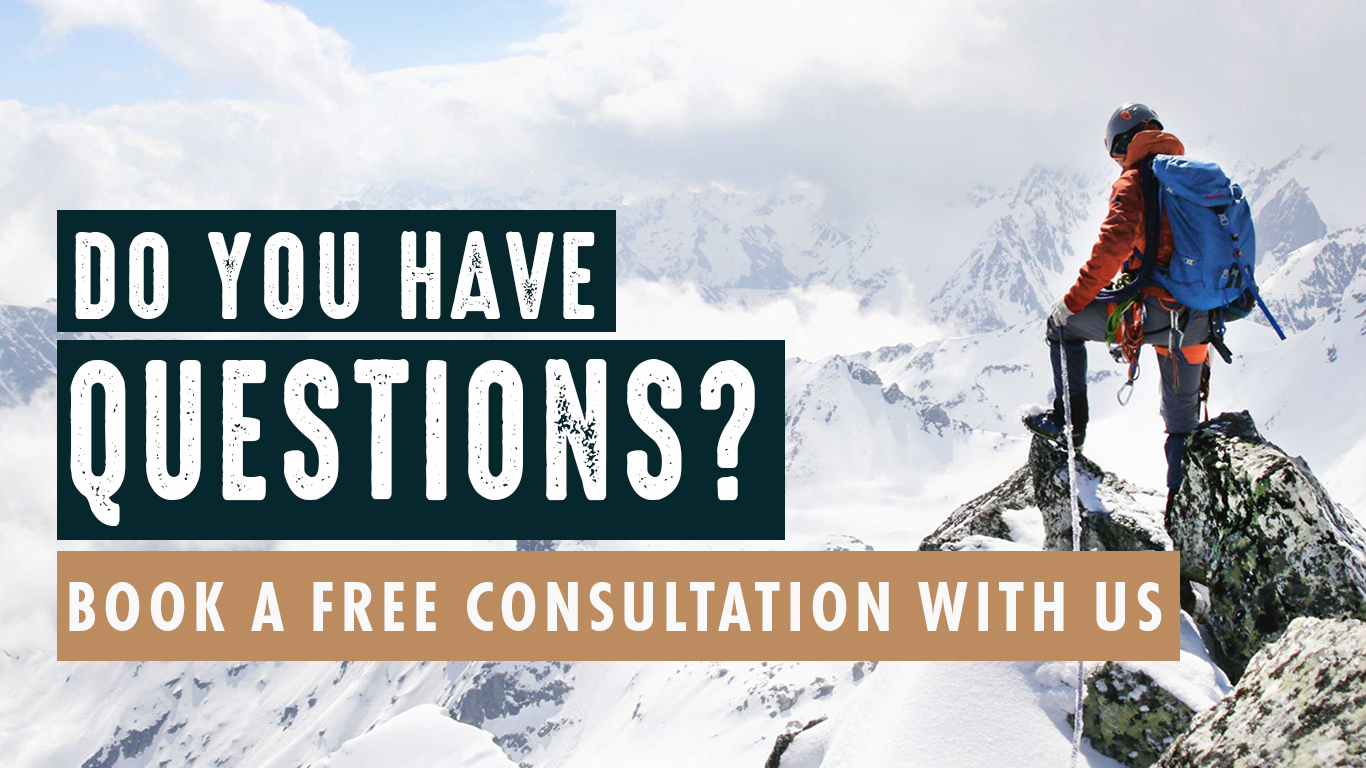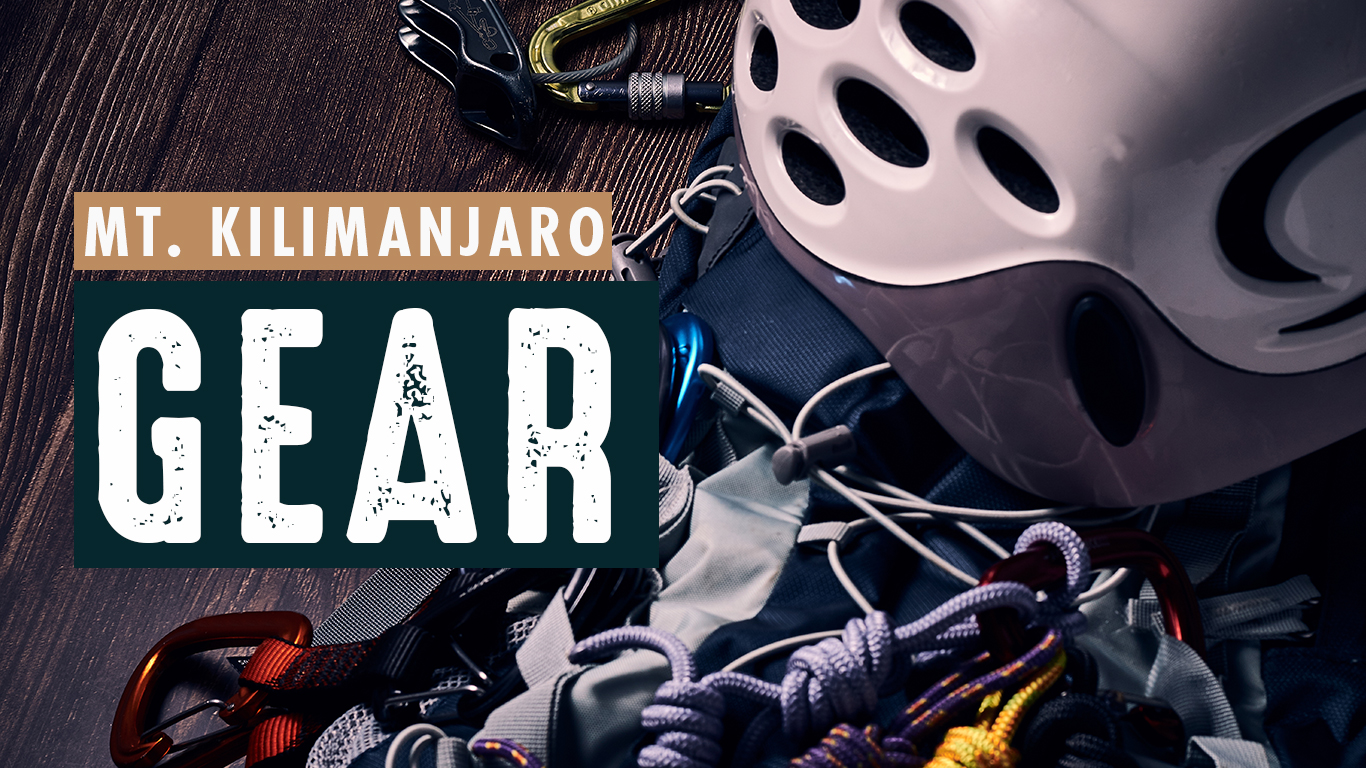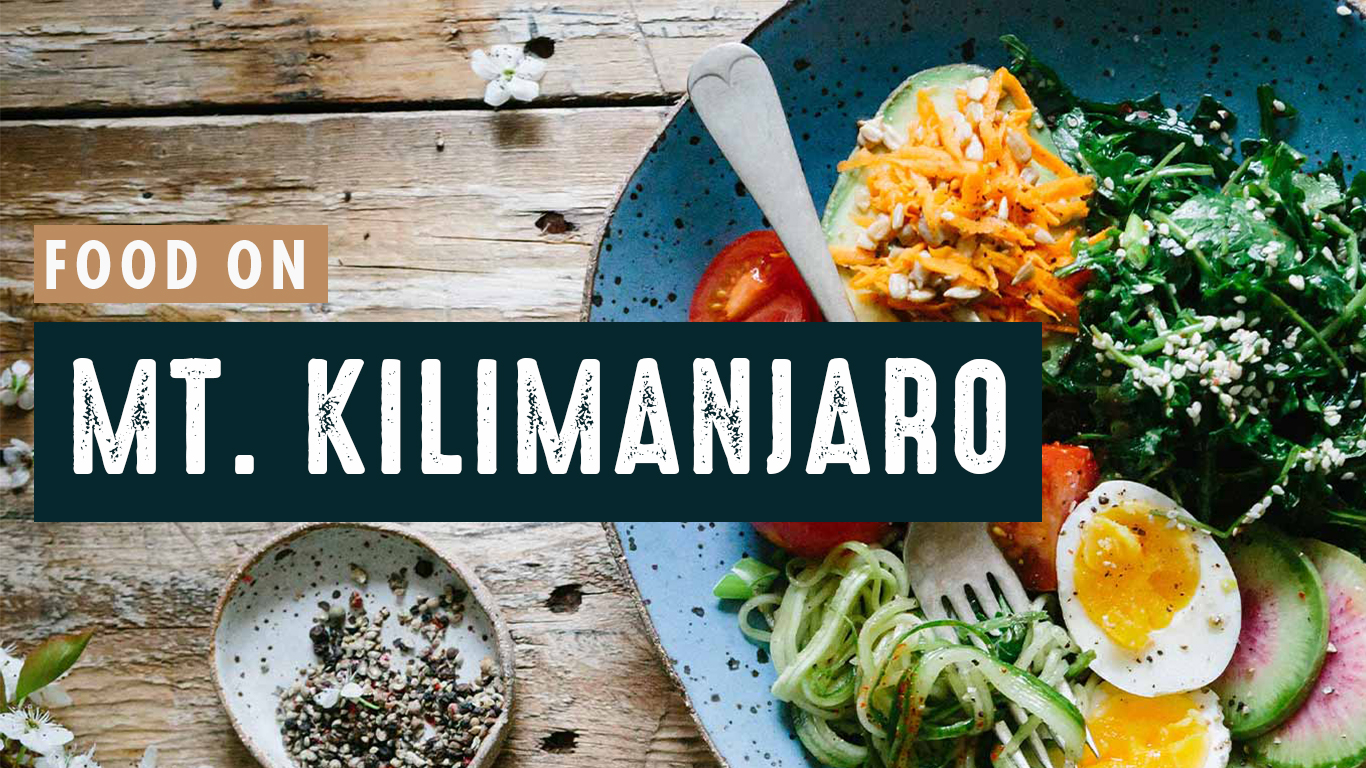Sometimes you find inspiration and ideas in the most unexpected places. For Cicely
Kolb, it was while staying with her parents during the pandemic as she completed
her Masters program. In an effort to stay active, she decided to use her Mom’s
NordicTrack treadmill one day and discovered that one of the routes she could run
was the Lemosho Route on Mount Kilimanjaro. Cicely shared, “It took me step by
step all the way up the mountain and I thought, I would love to do that some day.
That is definitely something I could do!” Having already completed the
Pacific Crest Trail and the Appalachian Trail in years prior, timing aligned with her new
career in teaching and the rest is history. On Christmas Eve of 2023, after more than 14 years
of sobriety and at the age of 49, what was once just a thought became Cicely’s reality
as she reached the peak of the real Lemosho Route and summited Mount
Kilimanjaro. In her own words, “Christmas Eve will never be the same again.”
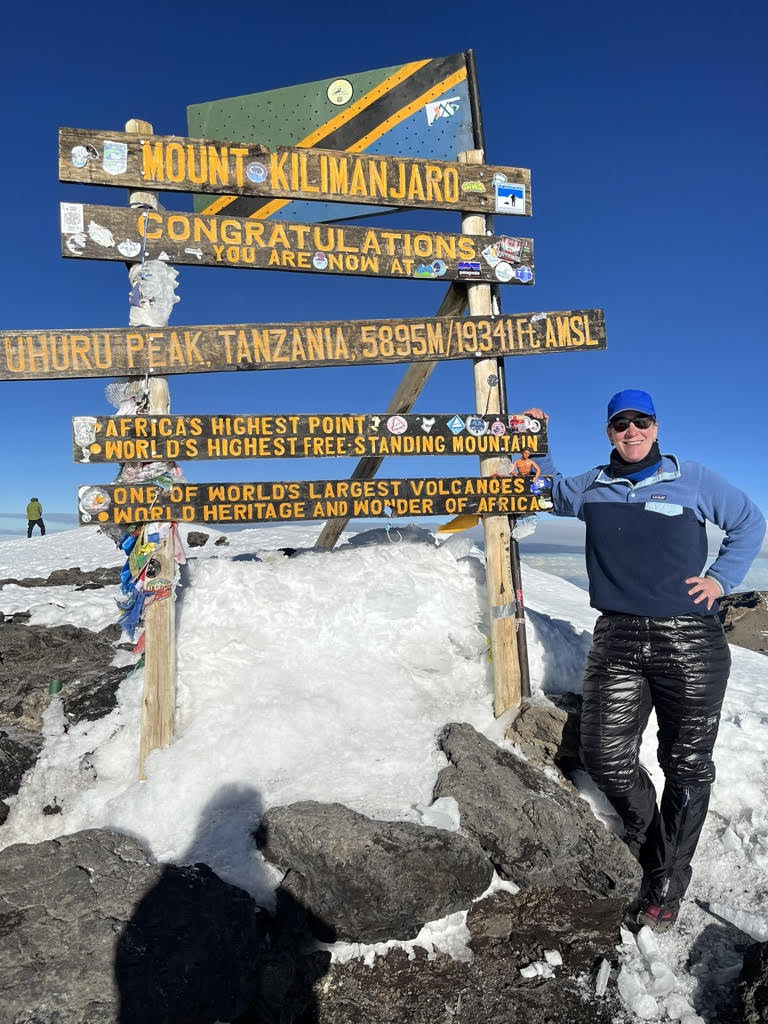
*Cicely Kolb at Uhuru Peak, the summit of Mount Kilimanjaro
How did you get into trekking?
The outdoors has always been a refuge for me. I grew up in a rural area in the
foothills of the Sierras in California so I had access to the outdoors. Nature was my
playground as a kid and my family was always very outdoorsy. We would go on
hikes and cross- country ski together. I gained a deep appreciation of the outdoors
thanks to my Mom who was always pointing out different plants and birds to me.
Nature became my escape when I needed to get away from the world. The outdoors
really is a space of healing for me. I can let my imagination run wild!
I am now of course an adult and I am in recovery. I am proud to say that I am
currently more than 14 years clean and sober! I remember as a child seeing the
Pacific Crest Trail from a campsite that we were staying at up in the Sierras and
seeing hikers passing by and wondering, what are they doing? That memory came
full circle for me when I became sober. One of the first things I rediscovered was my
love for the outdoors and how it serves as medicine for me. I made the decision to
do the Pacific Crest Trail (PCT) myself. I had been working in China teaching ESL
for a couple of years saving money and of course hiking. There are so many
incredible hikes in China! Hiking the Great Wall of China was a highlight for me.
When I returned to the US in 2015, I completed the California section of the PCT.
That was my very first long distance backpacking trip. I started with this crazy
heavy backpack that, over the course of my hike, got smaller and smaller and lighter
and lighter. I met people from all over the world. Although I set out on my own, I
was never really by myself. The experience helped me remember the joy of being a
kid exploring and playing and having so much fun in the woods.
After finishing that first section of the PCT, I would work coffee shop jobs and other
smaller jobs for a few months to save money and then I would go back out on the
trail, ultimately completing both the Oregon and Washington portions of the PCT in
the summer of 2016. Finishing the PCT was such a special moment for me.
It represented so much of my life. It almost felt like I had leveled up in a video game,
but it was my real life and that was amazing! I realized that I CAN do difficult things
and do them well. I CAN succeed and meet my goals and THAT was so important to
me in terms of my sobriety.
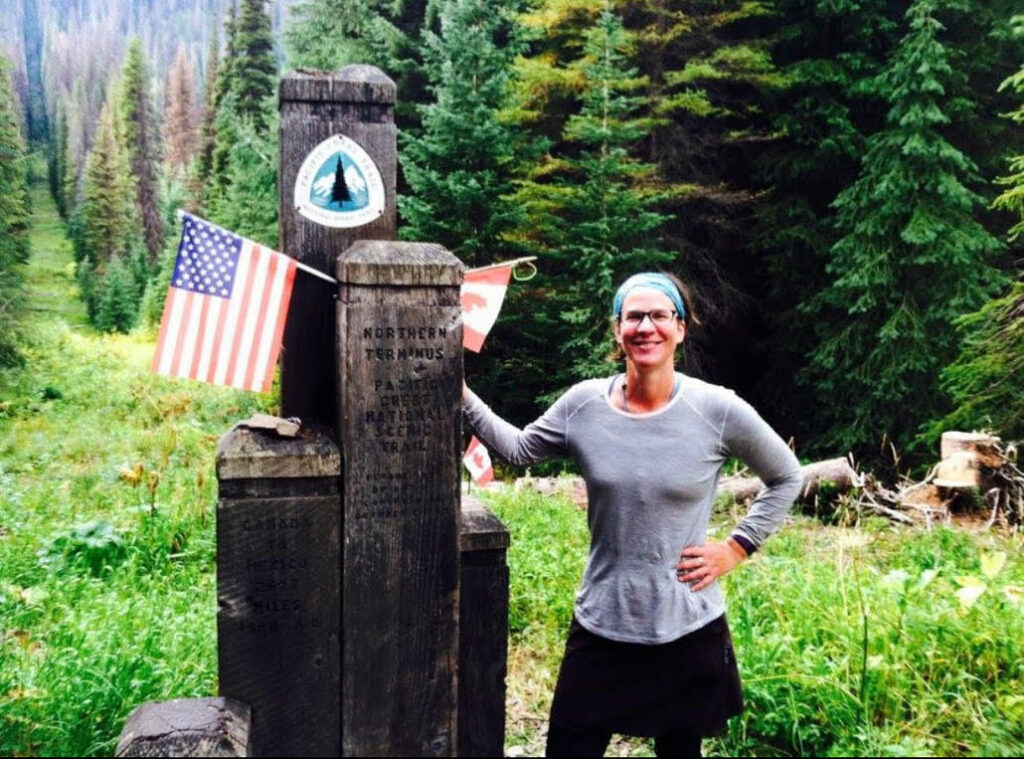
*Cicely Kolb finishing the Pacific Coast Trail in 2016
What do you love about the outdoors and trekking?
While for some hanging out with friends or being in social settings gives them
energy, hiking recharges me. When I am out on the trails alone on my hikes, I feel
like I am able to just be myself. There is nobody there to judge me. I become totally
immersed in the natural world around me. I notice all the small things and I think
noticing the small things in life helps give us a greater appreciation for our world
and our space. Noticing the small things, like right now in Oregon the Trilliums
blooming and the baby ducklings, that is big and important and impactful to me.
Something I love about trekking is that it relates to our lives and our goals. When I
was on the PCT, I didn’t think of the whole trail. That was too overwhelming. I
thought about the next two or three days ahead and found my way through that.
Then, I would think about the next chunk of the trail and making my way forward
once again. If you look at the big picture, it just gets too overwhelming. Trekking
reminds me how effective it is to break things down into small chunks in life and
how that makes reaching our goals feel easier.
What did you do to prepare physically and mentally for Mount Kilimanjaro?
I was in pretty good shape when I decided to climb Kilimanjaro. Also, living in
Portland, Oregon, I have access to all kinds of wonderful hiking trails. About 45
minutes from my house I found the perfect training hike. It was a 9.5-mile loop with
about 3,000’ of elevation gain! I did that a minimum of two times each week. In
October of 2023, just a couple of months before heading to Kilimanjaro, I
successfully completed my very first marathon. The training for that coupled with
hiking really helped me gain endurance and cardiovascular strength. It went a long
way in preparing me for the climb. With that said, you don’t need to be a
marathoner to summit Kili! It is accessible to all kinds of individuals.
With regard to mental preparation, most of that involved leaning into my
imagination and that child like wonder for the world that I try to cultivate when I’m
in the outdoors. My ten-year old self would have been like “Oh Wow! This is so
cool!” at the idea of climbing Mount Kilimanjaro, so I tried to channel that energy as
I prepared. I found myself feeling like a kid again! I would imagine myself being on
the hike and experiencing all the new things I knew I would experience. During the
hike itself, the guides really catered to that child like sense of wonder and my
imagination as they were constantly pointing out specific flowers and specific birds,
like the Malachite Songbird, on the trails. This helped to get me through the more
challenging parts of the climb and challenging days and helped me to remember
why I was there – to expand my perception of the world and truly experience this
mountain.
Having summited Mount Kilimanjaro, in your opinion, do you think it is equal
parts mental and physical strength or do you think one is more important than
the other?
I think mental strength is more important than physical for this climb. It is different
for everyone because we all have different reasons for wanting to climb this
mountain and we all have different goals. I believe though that if your reasons for
doing this are from the heart or stemming from something deep within you, you will
find a way to make it to the top. Kilimanjaro is not a technical mountain and so it is
accessible to a broad range of people will all kinds of skill levels. Not to diminish the
physical aspect because of course, you do need to carry your 20 pound pack on your
back for miles each day so it is certainly helpful to be in good physical shape, but
having done this, I would say mental strength is more important.
Were there any challenges that you faced leading up to your climb or during
your Kilimanjaro trek?
The toughest part of this experience for me occurred on acclimatization day. We
hiked from Shira 2 camp at 12,795’ up to the Lava Tower at 15,190’ to acclimatize to
the elevation and then, we hiked back down to our final stop for the day, the
Barranco camp at 12,795’. It was a beautiful day and the hike was fantastic! When
we got down to camp, it was just phenomenal to be surrounded by mountains on
one side and the Barranco Wall on the other. It was truly an extraordinary place.
Just before dinner, I was just sitting on a rock looking around and taking in these
beautiful views and I suddenly felt nauseous. Next thing I knew, I vomited up my
electrolyte water. I thought OK, this is just part of the acclimatization process. I
knew I needed to let the guides know and so I walked back to camp to update them.
They reassured me that this was in fact normal, but also let me know that it was
very important that I was able to eat. I had to be able to eat to summit. That was
one of the only moments that I wondered if I would actually make the summit. I
knew that if my nausea got worse and I couldn’t eat or hold food down, I wouldn’t be
able to continue on. I had experienced nausea when climbing Mount Whitney a few
years prior so I knew this was a possibility, but it was still difficult to navigate. The
chefs and the guides and the crew were all great though! The chefs made me a big
bowl of white rice for dinner and some grilled pineapple because they said it was
good for the stomach. I felt very supported through this challenging part of the
journey. Thankfully, the day after the nausea had started, around mid-day, I was
eating and keeping food down. I was hiking and I had energy and my confidence
increased. I knew that I was going to be OK.
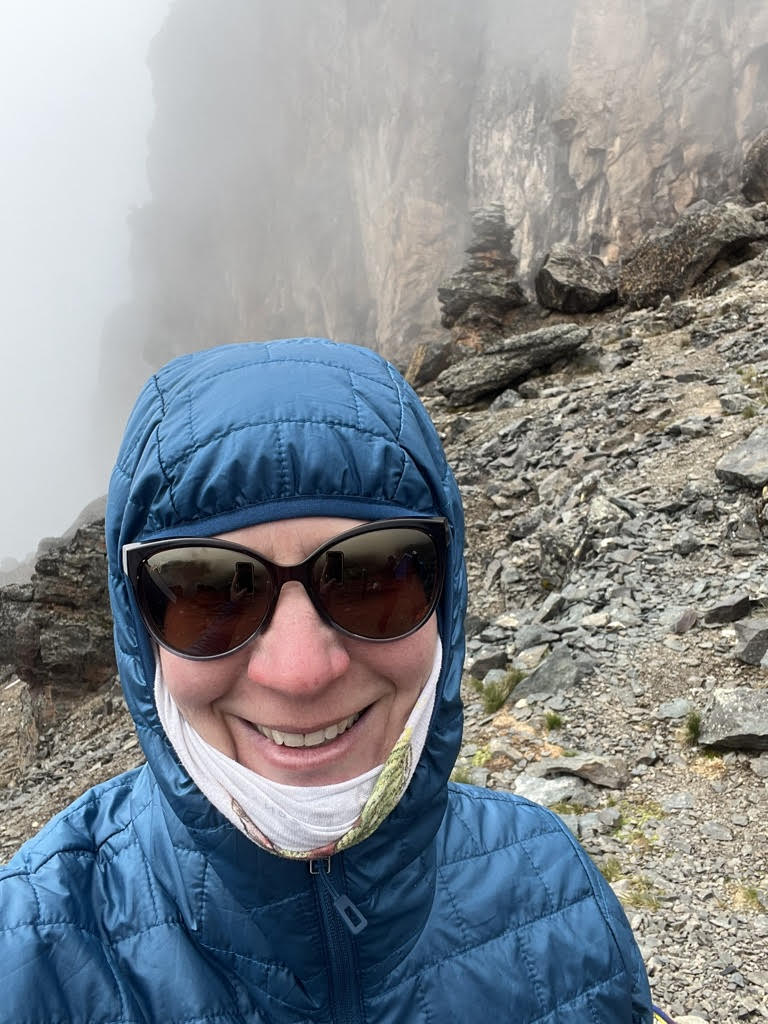
*Cicely Kolb at the Lava Tower on Mount Kilimanjaro
If you had to describe your summit experience in one word, what word would
you use?
Elated.
I felt so joyful to be there. When you’re on the summit and look around everyone is
smiling with pure joy and I don’t think we get to see a whole lot of that in daily life.
What are 3 lessons you learned from this experience?
1) How important it is and how rewarding it can be to have an experience
that is very well planned. Things happen, life happens, and I know we can
only be so prepared, but the time and energy that went into planning this
experience was well worth it.
2) This experience and each experience I have hiking is a reminder that I am
right to have confidence in my skills with regard to gear and climbing. I
think sometimes imposter syndrome comes up for us all in different ways
in our lives, but using my skills successfully on this climb served as a
reminder that I am capable. It also served as a springboard for bigger
things to come in my future. I am currently in early stages of planning to
summit Aconcagua in Argentina!
3) The outdoors is medicine. Getting the privilege to travel to another
country and understand what the outdoors means in different cultures is
so rewarding and helped me to reshape what the outdoors could mean to
me too.
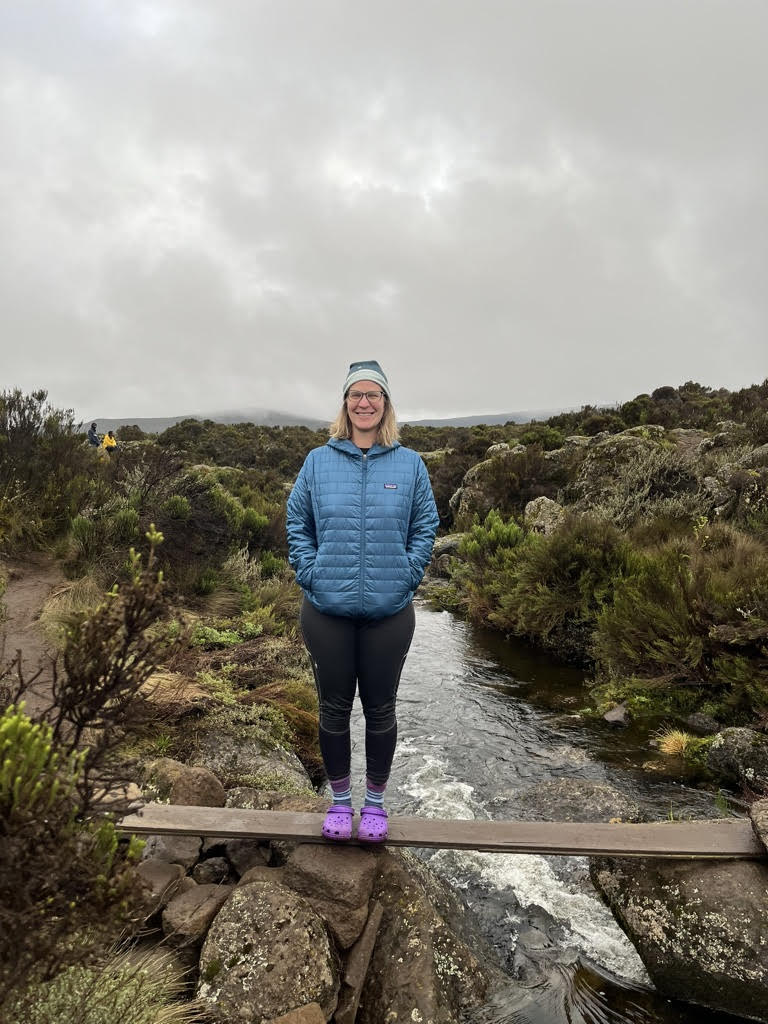
*Cicely Kolb at Shira 1 Camp on Mount Kilimanjaro
What is one thing you wish you had taken with you on the trek that you didn’t?
TUMS because I now know nausea is a thing for me at high altitude. Those would
have been nice to have!
Was there anything you brought with you that you didn’t need?
I packed too many clothes.
What was your most valuable piece of gear?
My hydration pack was my most valuable piece of gear. Staying hydrated is so
important and having my pack and a hose to easily drink from made that so much
easier for me. I also had electrolyte tabs to add to my water that proved to be a
necessity for me. Lastly, having my Nalgene bottle to fill with hot water and put in
my sleeping bag at night. That was such a treat!
What is one thing you would you say to someone considering climbing Mount
Kilimanjaro?
You will be surprised at what you can do. Your body and your willpower is a lot
stronger than the voice filled with doubt in your head. Your body can do much more
than you THINK it is capable of doing. You CAN do these difficult things even if right
now you’re doubting your ability to. This climb is for anyone that has the mind to do
it. It doesn’t matter what your body type is or your age or anything else.
Also, definitely do a safari while you are there. It was such an incredible experience!
To learn more about Cicely Kolb and her adventures, follow her on Instagram @cicelykolb or check out her blog here: tentwhirl.blog

